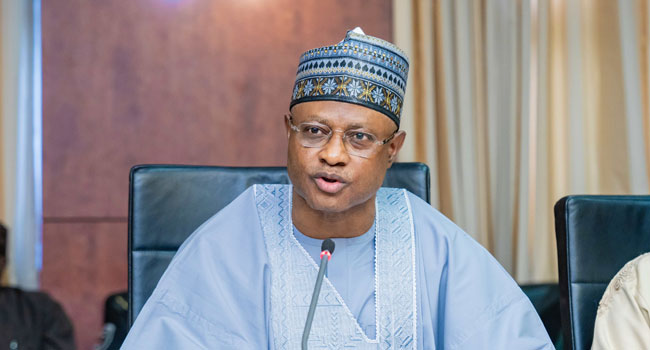Kaduna State Governor Uba Sani has attributed the persistent insecurity in Northern Nigeria to deep-rooted poverty and widespread economic marginalisation.
He warned that meaningful progress will remain elusive without a comprehensive response to these challenges.
In an appearance on ‘Channels Television’s Sunday Politics’, the governor reflected on his background as an activist, noting his long-standing advocacy for social justice even during Nigeria’s military rule.
READ ALSO: El-Rufai blasts Gov Sani, says N150bn federal fund driving him
“I’ve always stood on the side of the people. I was detained multiple times for challenging injustice,” he recalled.
Sani said he prioritised tackling deprivation and economic inequality upon assuming office, relying on data he had access to during his tenure as Chair of the Senate Committee on Banking.
“Upon becoming governor, I examined the poverty indicators not just in Kaduna but across the entire northern region. The figures I encountered from the Central Bank and Sustainable Development Goals reports were disturbing,” he said.

The data revealed that as of 2023, a staggering 60 to 65 per cent of Northern Nigerians—particularly in the North-West—were financially marginalised.
Sani warned that such conditions leave many young people vulnerable to exploitation by criminal elements.
“Insecurity here is largely rooted in economic despair. When youths are unemployed and hopeless, they become easy targets for recruitment by armed groups,” he stressed.
The governor also highlighted the education crisis, revealing that over 350,000 children were out of school in Kaduna State at the time he assumed office.
“Out of the estimated 18.2 million out-of-school children nationwide, around 70 per cent are in the North. We’ve been working closely with development partners like the World Bank and UNICEF to address this,” he explained.
While some improvements have been made, Sani cautioned that resolving the crisis would require sustained effort and patience.
“This situation didn’t emerge overnight. It’s the result of years of neglect. We failed to respond when it mattered most,” he acknowledged.
“We must now be realistic. It could take more than a decade to see significant change.”
Calling for collective responsibility, he urged northern leaders across all levels to unite behind a common agenda to fight poverty and exclusion.
“It’s time for honest reflection. Ministers, lawmakers, and governors must work together. For the first time, we seem to be aligned on this issue, and that gives me hope,” he said.
He also criticised the overreliance on force and palliative measures, arguing that long-term peace would only come through economic and social investments.
“Throwing money at the problem or relying on military interventions won’t solve anything. We need to close the development gap between urban centres and rural communities,” he emphasised.
Sani pointed to deficits in basic infrastructure, schools, and healthcare across many parts of the North-West as major contributors to the region’s challenges.
“There are communities that have been left behind for decades. These gaps are fueling despair and instability,” he said.
On a positive note, the governor mentioned that Kaduna State has recorded a decline in communal clashes, particularly those linked to religious or farmer-herder tensions.
READ ALSO: Shehu Sani announces intention to contest for ee-election in 2027
“We’ve seen a significant drop in those kinds of crises in the last couple of years. It’s not completely gone, but the situation is far better than it was,” he noted.
He urged government institutions to build public trust through fairness and equity.
“People want to see that they’re being treated justly. Without justice, no amount of development will restore their confidence in the system,” Sani said.


